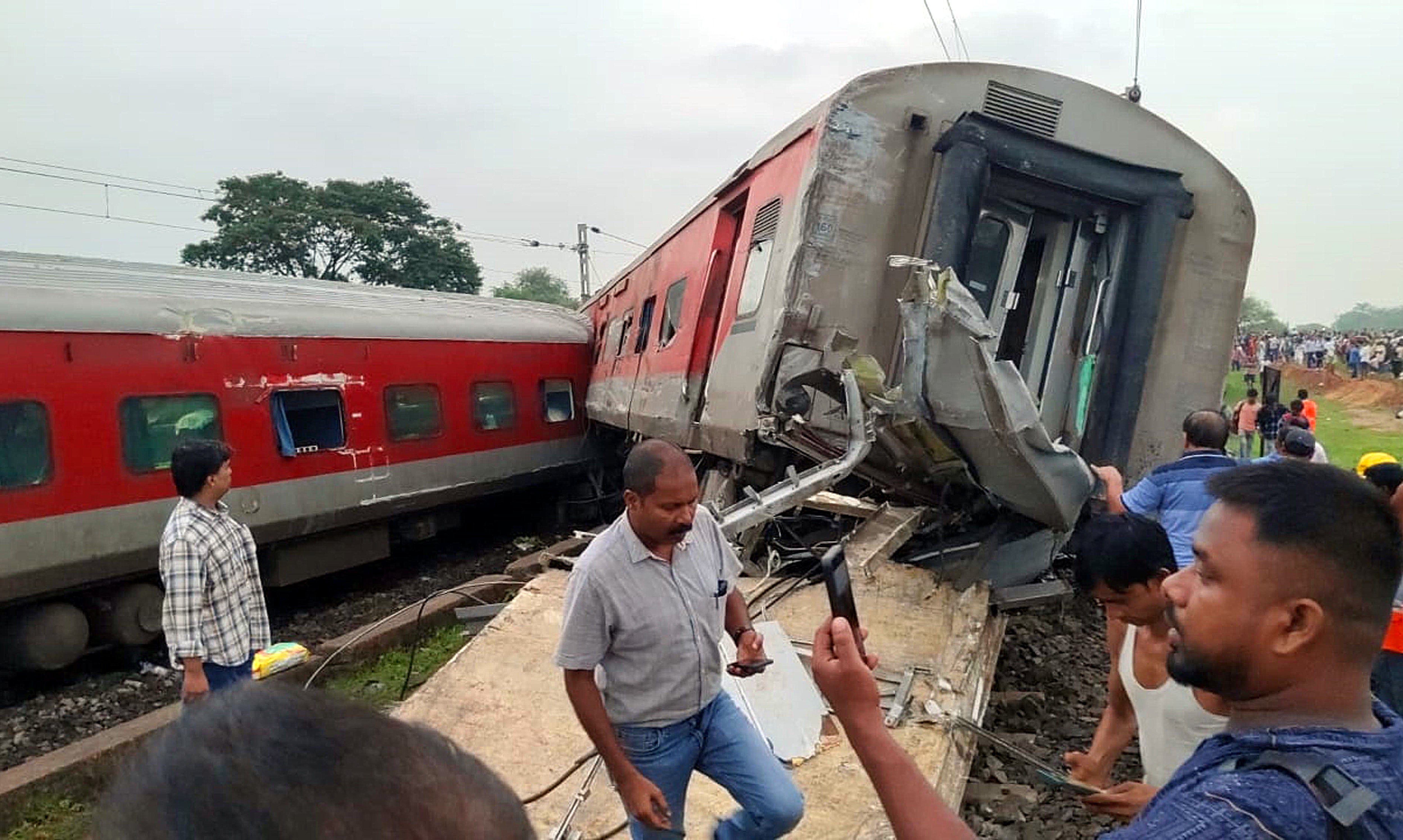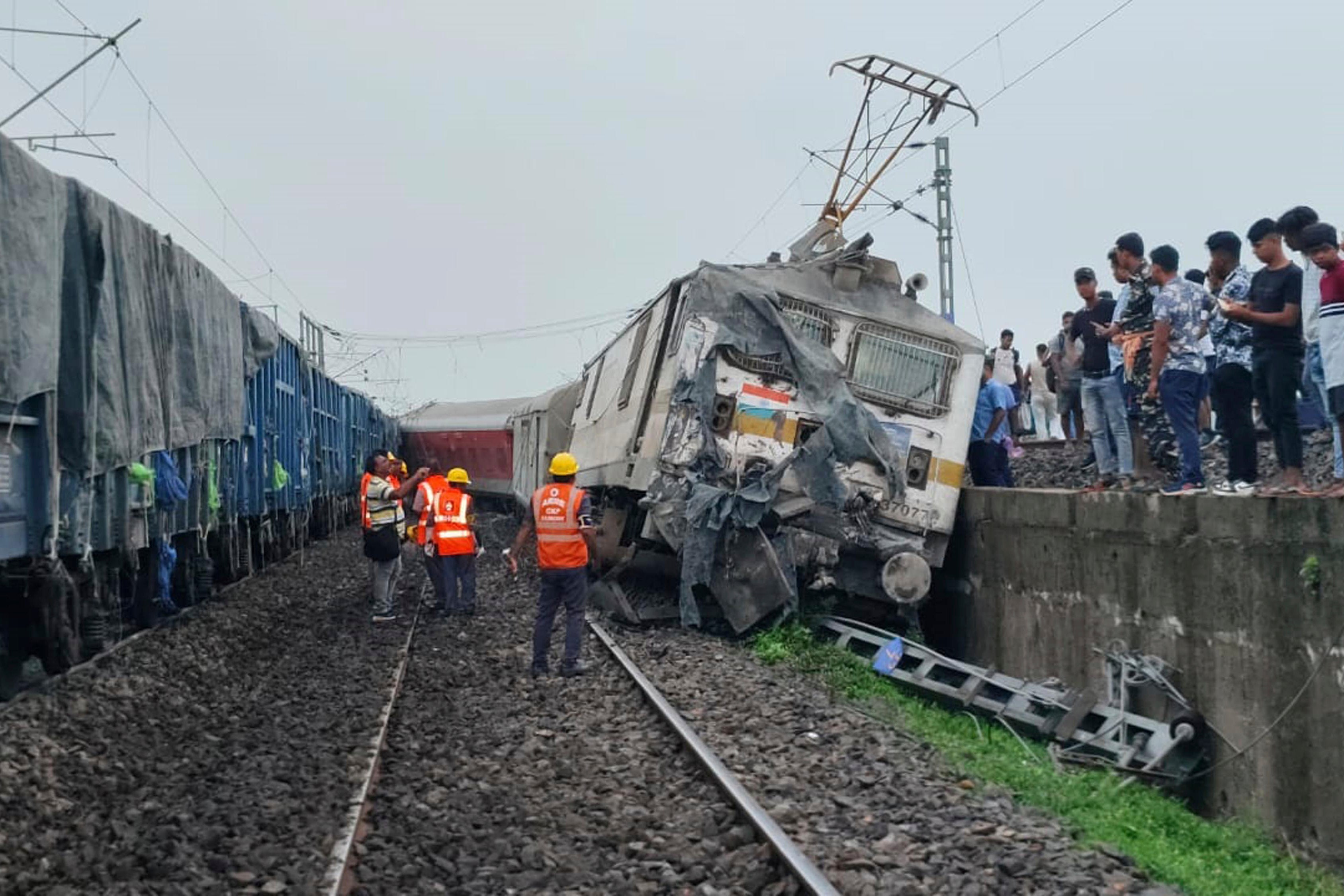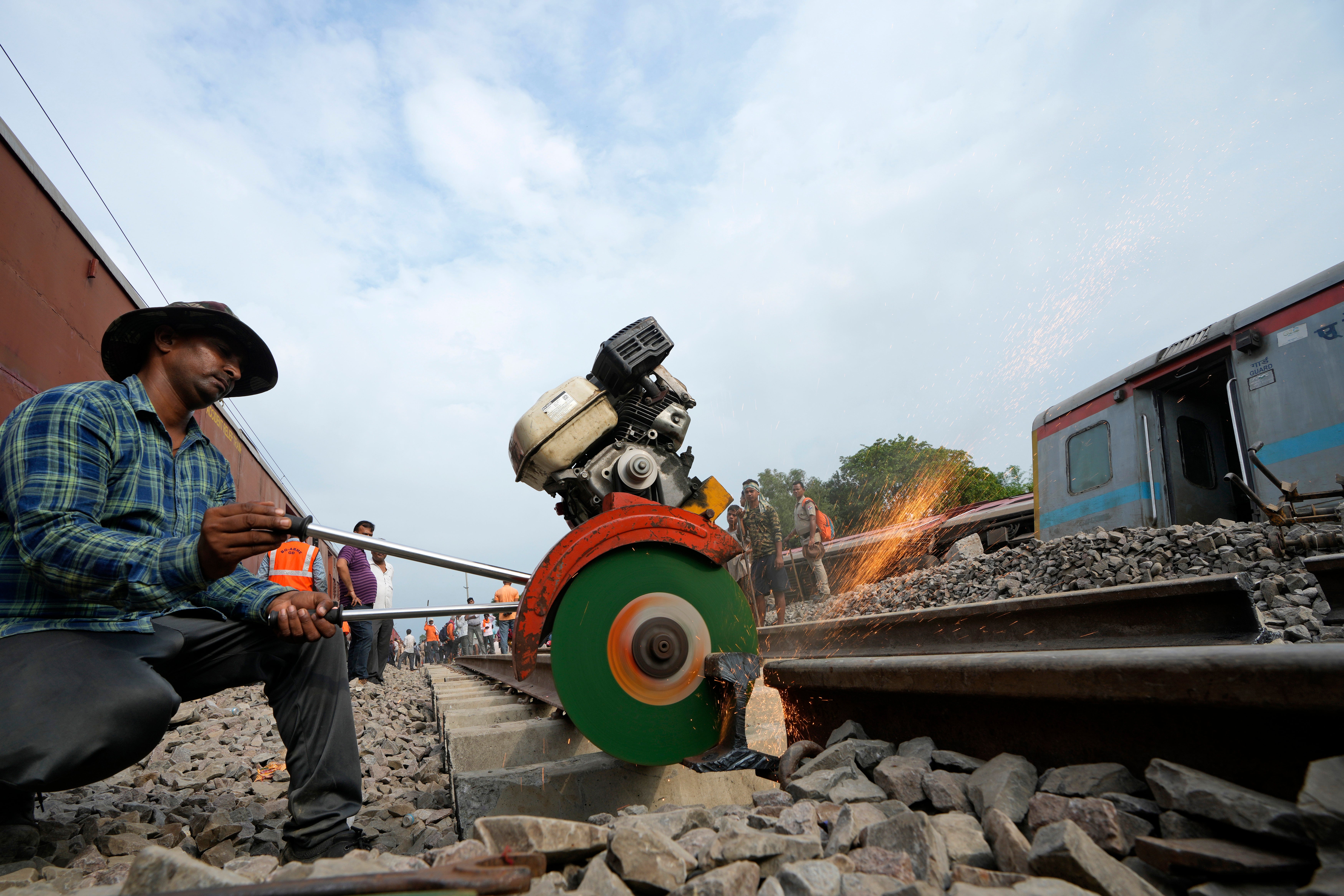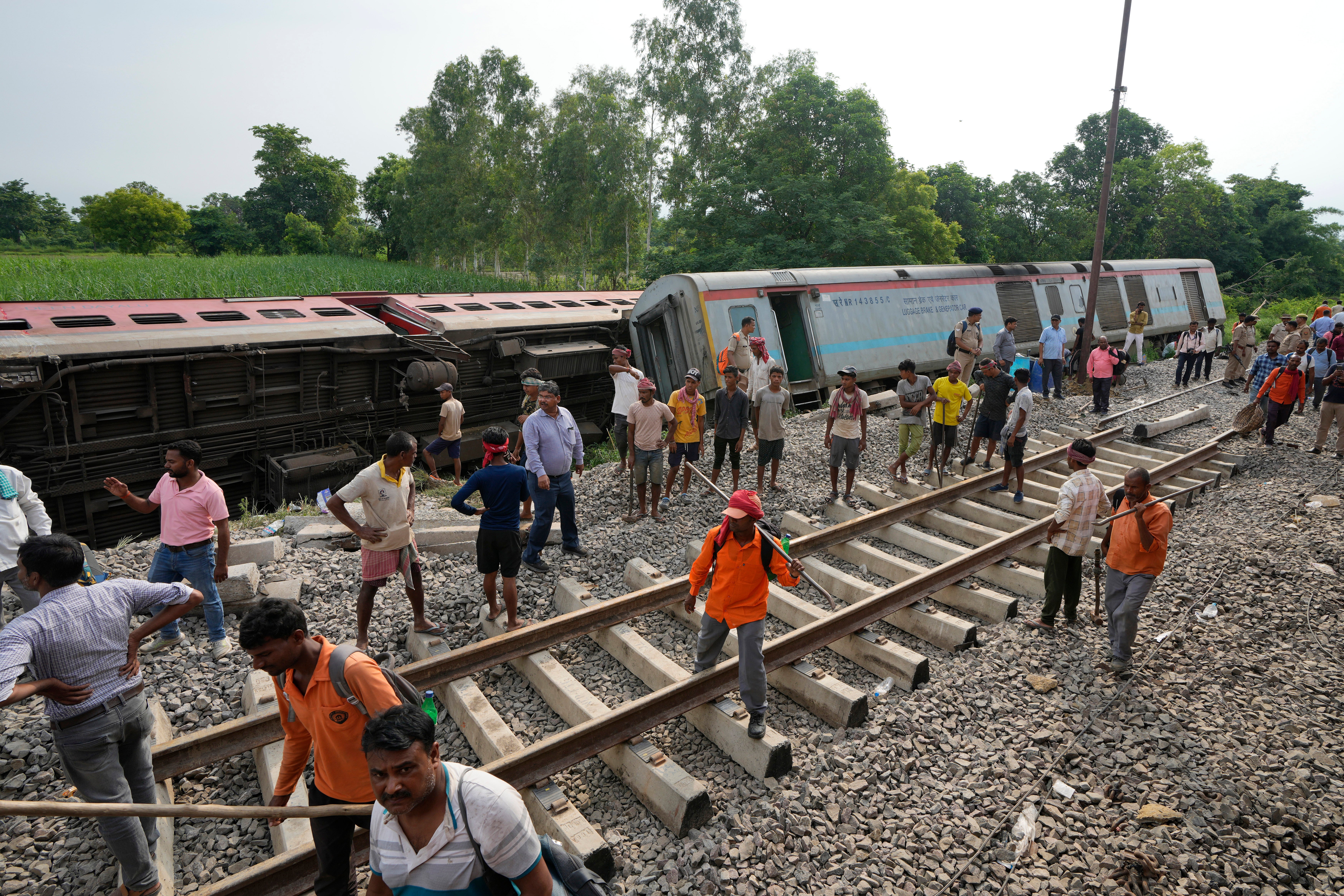Why do trains keep getting derailed in India?
Two people are killed and 20 injured in latest train accident in northern Jharkhand state
Your support helps us to tell the story
From reproductive rights to climate change to Big Tech, The Independent is on the ground when the story is developing. Whether it's investigating the financials of Elon Musk's pro-Trump PAC or producing our latest documentary, 'The A Word', which shines a light on the American women fighting for reproductive rights, we know how important it is to parse out the facts from the messaging.
At such a critical moment in US history, we need reporters on the ground. Your donation allows us to keep sending journalists to speak to both sides of the story.
The Independent is trusted by Americans across the entire political spectrum. And unlike many other quality news outlets, we choose not to lock Americans out of our reporting and analysis with paywalls. We believe quality journalism should be available to everyone, paid for by those who can afford it.
Your support makes all the difference.Two people were killed and 20 injured after a passenger train derailed in eastern India on Tuesday, the latest in a series of railway accidents that has caused widespread safety concerns.
The train from Howrah in east India was on its way to Mumbai on the west coast when 22 of its coaches came off the rails at Barabamboo in Jharkhand state at around 3.45am local time on Tuesday.
Railway authorities are investigating the latest accident amid conflicting news reports about a collision.
“Two passengers died. Their bodies were recovered from the bathrooms after a coach was cut with gas cutters,” Prabhat Kumar Badiyar, a senior local administrative official, was quoted as saying by the daily Hindustan Times.
“The Howrah Mumbai Mail rammed a goods train from behind and about a dozen of its coaches derailed. A rescue operation is ongoing,” he said.
The Indian Express, however, quoted an anonymous railway official as saying that “there was no collision”.
“The derailment could be due to an operational error or some mechanical failure of the tracks, wheels. All possible angles are being investigated,” the official told the paper.

A series of deadly train collisions and derailments has caused widespread safety concerns in the country and prompted opposition leaders to accuse the Narendra Modi government of misgovernance.
Tuesday’s was the second fatal railway accident in northern India in July. At least four people were killed and 20 injured on 18 July when a train derailed in Uttar Pradesh. Ten people were killed last month when a freight train rammed into a stationary passenger train in the eastern state of West Bengal.
And in one of the country’s deadliest train accidents, over 280 people were killed in eastern Odisha state last year.

Calling the latest tragedy a “disastrous rail accident”, West Bengal chief minister Mamata Banerjee asked, “Is this governance?”
“This series of nightmares almost every week, this unending procession of deaths and injuries on railway tracks, for how long shall we tolerate this?” she asked.
“Will there be no end to the callousness of the government of India? My heart goes out to the bereaved families, condolences to the next of kin.”
The main opposition Congress party issued sharp criticism of federal railway minister Ashwini Vaishnaw. Party spokesperson Jairam Ramesh said the "fail minister" has "overseen three accidents" since June resulting in 17 deaths, yet there is "no accountability".
India’s railway network is undergoing a £24bn transformation with new trains and modern stations under Mr Modi’s push to boost infrastructure and connectivity, Mr Vaishnaw said while presenting the new rail budget on 23 July, adding that nearly £10bn will be spent to enhance the safety of the national carrier.

But despite such efforts to upgrade infrastructure, former Railway Board chairman Vivek Sahai told the BBC, derailment remains a “bugbear”.
According to a report by the Commission of Railway Safety, the number of railway accidents increased from 35 in 2021-22 to 48 in 2022-23, with serious accidents doubling in successive years.
From 2013-14 to 2019-20 in contrast, there was “a declining trend” in railway accidents.
The report noted that derailments caused the majority of the accidents, accounting for 75 per cent of the total in 2022-23 and over 77 per cent in 2021-22. Collision and fire were the next biggest causes.

Train derailment could be caused by an ill-maintained track or “a coach could be faulty or there could be an error in driving”, Mr Sahai said after the Odisha accident.
According to Hindustan Times, derailments mostly occur due to “rail fractures” from expansion or contraction during extreme summer or winter conditions. “While technology and funding issues are there, the big problem is that adequate time to carry out routine maintenance of tracks is never available as drivers are under stress to run more trains in lesser time,” Sanjay Pandhi, of the Indian Railways Loco Running Men Organisation, told the daily in 2016.
Swapnil Garg, professor of strategy management at the Indian Institute of Management, Indore, however, told IndiaSpend that “one particular incident cannot cause a derailment”.
“It has to be a combination of three, four or five different mistakes before a derailment happens,” he said.
“When there is a signalling failure, mechanical failures and civil engineering failures, we find that these collectively result in a derailment.”

Join our commenting forum
Join thought-provoking conversations, follow other Independent readers and see their replies
Comments